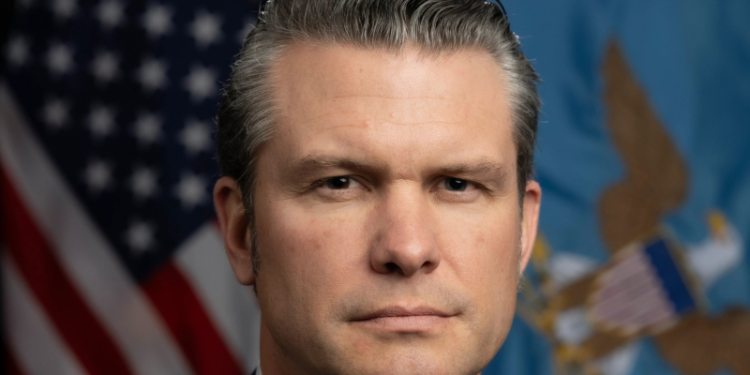At the 26th Ukraine Defense Contact Group meeting in Brussels on Wednesday, February 12th, the United States announced it would no longer support NATO membership for Ukraine, a return to pre-2014 borders, or the deployment of U.S. troops. Secretary of Defense Pete Hegseth outlined the shift in U.S. policy, emphasizing diplomacy over continued military engagement and urging European nations to take greater responsibility for Ukraine’s defense.
“The bloodshed must stop, and this war must end,” Hegseth said, outlining President Trump’s approach to resolving the conflict between Ukraine and Russia. He emphasized that a diplomatic resolution would require “a realistic assessment of the battlefield,” stating that pushing for Ukraine to regain its pre-2014 borders is “an unrealistic objective.”
Hegseth made it clear that the United States does not view NATO membership for Ukraine as a viable outcome of any negotiated settlement. Instead, he suggested alternative security guarantees involving European and non-European troops in a non-NATO mission. “If these troops are deployed as peacekeepers to Ukraine at any point, they should be deployed as part of a non-NATO mission, and they should not be covered under Article 5,” he said.
Reaffirming that the U.S. would not send troops to Ukraine, Hegseth stated, “To be clear, as part of any security guarantee, there will not be U.S. troops deployed to Ukraine.” He also called on European allies to take on a greater share of Ukraine’s military funding, saying, “Europe must provide the overwhelming share of future lethal and non-lethal aid to Ukraine.”
Hegseth noted that the U.S. faces “consequential threats” to its security, including challenges from China, and that American resources must be reallocated accordingly. “The United States will no longer tolerate an imbalanced relationship which encourages dependency,” he said, urging European nations to increase their defense spending.
The policy shift is expected to have significant implications for the ongoing war, as Ukraine has relied heavily on U.S. military aid. With the U.S. stepping back, European nations will be expected to provide the necessary support. “More must still be done,” Hegseth said, calling on allies to fulfill their commitments and take greater ownership of Europe’s security.
Hegseth assured that the U.S. remains committed to NATO, but the administration is pushing for a recalibrated approach. “Our relationship will prioritize empowering Europe to own responsibility for its own security,” he said. The speech marks a definitive change in U.S. foreign policy, shifting the focus away from direct involvement in Ukraine and toward a greater reliance on European leadership in regional security.









